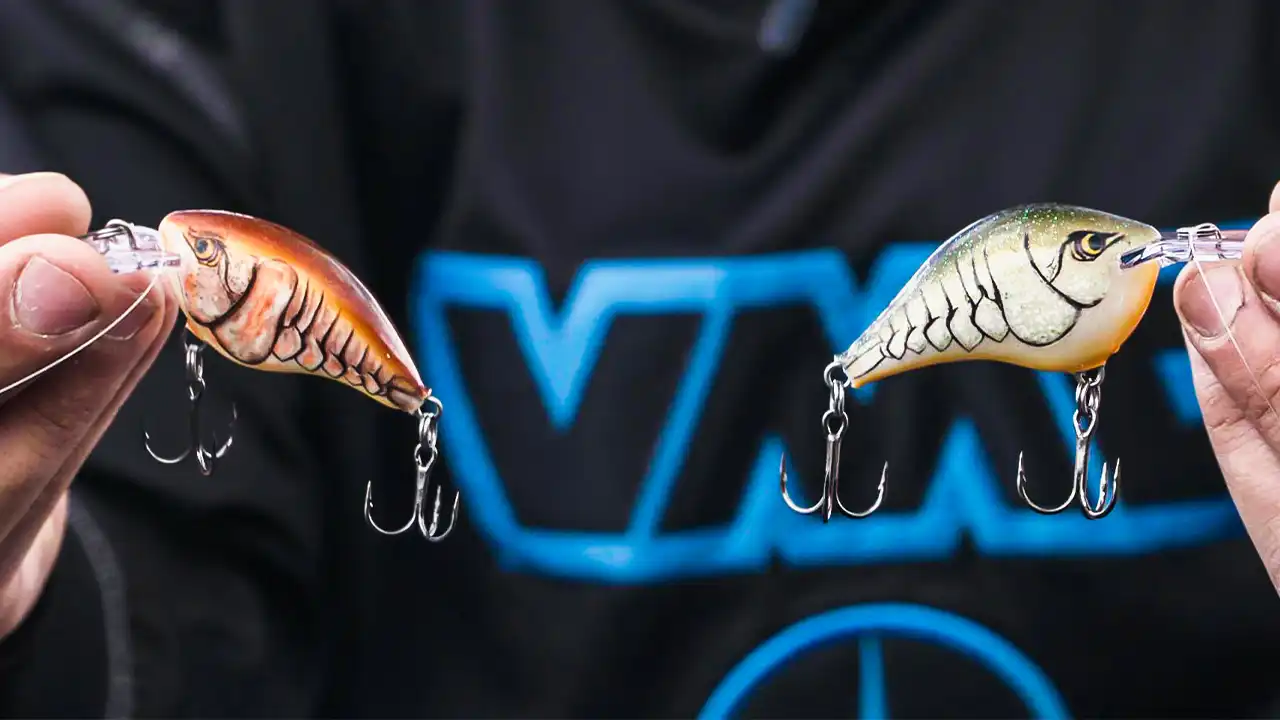Bassmaster Elite Series Pro Seth Feider shares valuable insights on the differences between the Rapala DT4 and DT6 crankbaits. The DT6 is a legendary prespawn bass crankbait, but as Seth attests, the DT4 remains underutilized — a mistake on reservoirs with shallow banks and river systems. Learn when and where to utilize each crankbait to maximize your fishing success, along with tips for the ideal gear, retrieval techniques, and more.
CRANKBAITS (retail links)
- Rapala Dives To Series DT04 Buy at Omnia Fishing
- Rapala Dives To Series DT06 Buy at Omnia Fishing
ROD SETUP
- ROD – Daiwa Tatula Elite Series Rod Casting Rod, 6’9″ Medium-Light (Jerkbait | Light Topwater) Buy at Omnia Fishing
- REEL – Daiwa Tatula SV Casting Reel, 7.1:1 Buy at Omnia Fishing
- LINE – Sufix Advance Fluorocarbon, 12-pound Buy at Omnia Fishing
Seth highlights the advantages of using a DT4 crankbait on shallow, flat banks and river systems. While over-cranking the depth is a common technique to maintain bottom contact, you can overdo it. In most situations, you get better crankbait performance by closely matching bait running depth to water depth, such as a DT4 (~4-foot running depth) in 2- to 4 feet of water.
The DT4 has some unique differences from a DT6, such as a tighter wiggle and suitability for river fishing. Its shallower diving depth and dive angle allow it to quietly contact and erratically deflect off of cover like rocks and wood with minimal snagging instead of immediately regaining traction and burying into the bottom. The smaller size of both crankbaits makes them well-suited for mixed bass species waters – spotted bass and smallmouth bass have no problem getting the bait in their mouths.
Seth explains how a 7:1 gear ratio casting reel excels when cranking in current. You also need a casting reel with a fine-tuned braking system for effectively casting light balsa crankbaits with minimal backlashing. The Daiwa Tatula line is perfect for this. Seth opts for a sensitive graphite rod with a parabolic action over fiberglass. In conjunction with fluorocarbon, Graphite transmits every bait vibration down to his hand so he can read the cover and bait action.
This is shallow cranking at its finest. As such, your line takes a beating coming into contact with abrasive bottoms and cover elements such as wood. Feider recommends stepping up to a beefier 12-pound fluorocarbon line for added protection.












